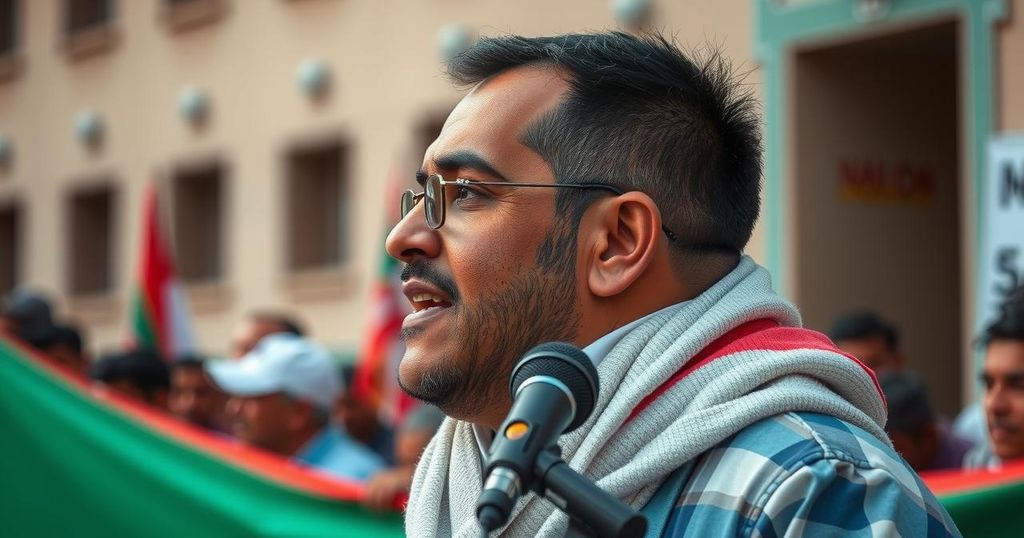Said Ait Mahdi, a Moroccan activist, has been sentenced to three months in prison for leading protests against the government’s earthquake response. His conviction on charges such as defamation and assault has been criticized as politically motivated by human rights groups. The September 2023 earthquake severely impacted the Al Haouz region, prompting public outcry over recovery mismanagement.
A Moroccan activist prominent for his protests against the government’s response to the September 2023 earthquake, Said Ait Mahdi, was sentenced to three months in prison. He was also ordered to pay a fine exceeding $1,000. Charged with defamation, assault, and inciting unauthorized protests, his conviction has drawn criticism from human rights groups, who view the case as politically charged and an act of reprisal for his advocacy in the earthquake-affected region.
The 6.8-magnitude earthquake devastated the Al Haouz area, resulting in nearly 3,000 fatalities and widespread destruction. Following this tragedy, Ait Mahdi emerged as a leader among activists, challenging officials on their perceived mismanagement of recovery efforts leaving many individuals in tents or temporary housing. While other activists faced a similar plight, Ait Mahdi became the first to receive such a sentence, highlighting the ongoing concerns regarding civil liberties in Morocco.
Defenders of civil rights, including the Moroccan Association for Human Rights, condemned these punitive measures, characterizing Ait Mahdi’s arrest as arbitrary and retaliatory. Collectively, NGOs and leftist groups have accused the government of attempting to obscure significant failures in its recovery operations. The coalition advocating for Ait Mahdi’s release has called for his immediate freedom, denouncing governmental repression against those who speak out.
The earthquake has not only revealed the deficiencies in regional infrastructure but has also heightened long-standing inequalities faced by indigenous communities. With more than 60,000 homes and numerous schools damaged, Morocco has committed over $11.5 billion for recovery efforts, aiming to provide substantial support to affected families. Activist groups continue to engage in protests, urging a faster reconstruction process and bringing attention to their plight in various parts of the country.
Support for Ait Mahdi remains strong, with public demonstrations occurring outside courthouses, emphasizing community solidarity for the rights of earthquake victims and transparency in government accountability.
The sentencing of Said Ait Mahdi occurs within the context of a significant natural disaster that struck Morocco in September 2023. A severe earthquake devastated the Al Haouz region, leading to massive loss of life and widespread infrastructure damage. Public discontent has arisen over perceived government inadequacies in crisis response and recovery efforts, prompting protests led by activists seeking to address the concerns of those affected. Ait Mahdi’s leadership in advocating for the rights of these individuals has positioned him as a target in a politically charged climate.
Said Ait Mahdi’s sentencing epitomizes the tensions between civil liberties and governmental authority in Morocco, particularly in the aftermath of a natural disaster. His case highlights broader issues of human rights and the struggles of marginalized communities affected by the earthquake. The collective advocacy for his release underscores the demand for accountability and transparency in government actions, particularly regarding the recovery efforts for those devastated by this calamity. As protests continue, the significance of Ait Mahdi’s activism remains at the forefront of Morocco’s political discourse.
Original Source: www.independent.co.uk






